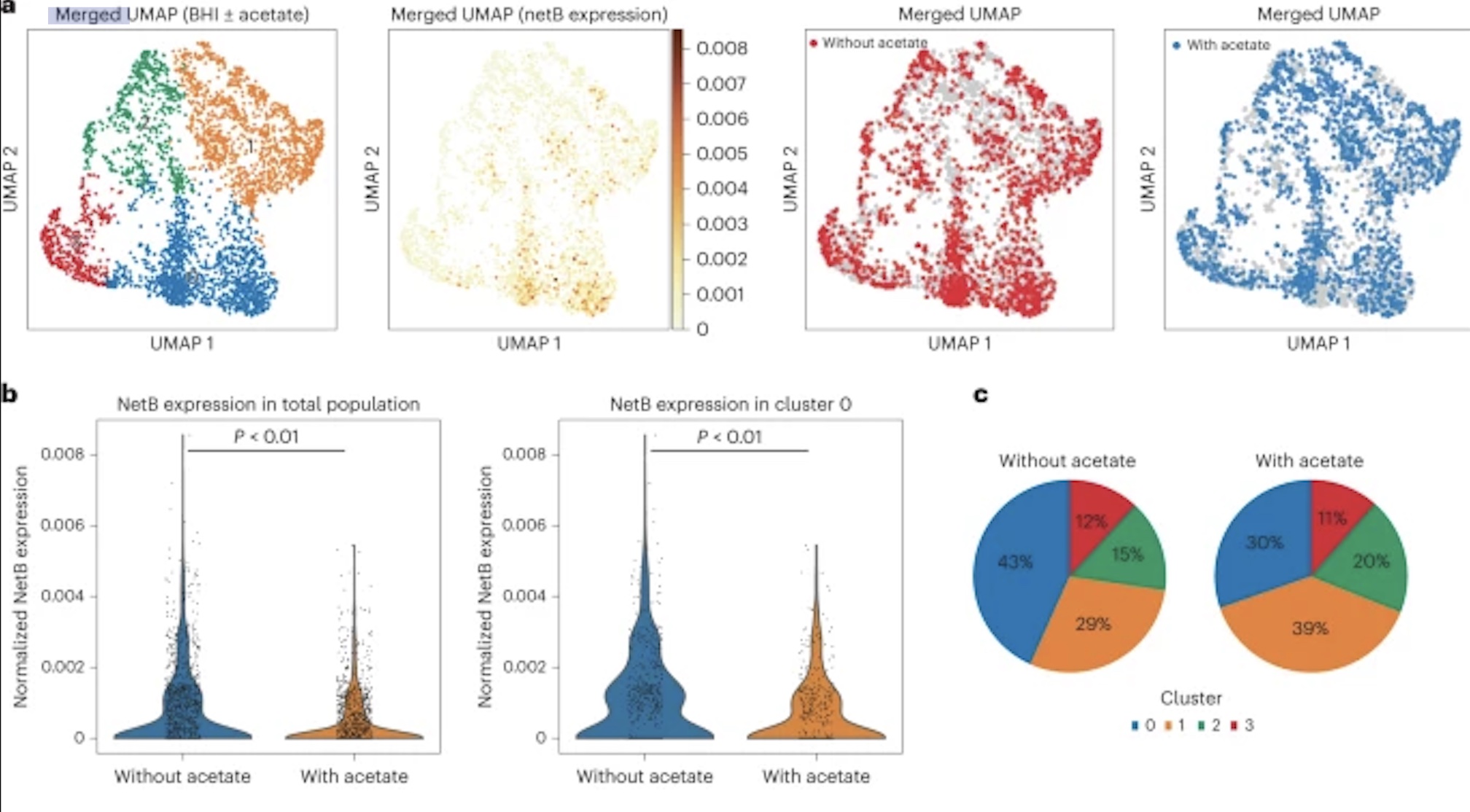New research by Adam Rosenthal, PhD, assistant professor in the Department of Microbiology and Immunology at UNC, analyzed the cell states of isogenic bacterial populations via a developed probe-based bacterial sequencing (ProBac-seq) method. After confirming the sequencing method accurately identified known cell states and transcriptional heterogeneity of bacterial cells, Rosenthal et al. applied ProBac-seq to Clostridium perfringens and found that despite transcriptional heterogeneity, these identical cells behaved differently with varied functions within the bacterial population. Specifically, through single-cell analysis on C.perfringens and graph-based clustering, four distinct subpopulations were revealed, with all clusters preferentially expressed netB, a toxin responsible for necrotic enteritis disease. To investigate mechanisms affecting expression rates of the toxin, C.perfringen was treated with sodium acetate. Following treatment, the expression of netB was significantly less in comparison to the control cluster. These findings are just the beginning to understanding bacterial populations and mechanisms behind single-cell behavior and could lead to a new approach to antibiotic tolerance down the line.
Bifunctional cancer cell–based vaccine concomitantly drives direct tumor killing and antitumor immunity
Despite the extensive research conducted on cancer vaccines and related therapeutics, glioblastoma remains uncured. Treatment options fall into a combination of surgery, radiation, and chemotherapy in an effort to slow tumor growth. In a promising new study led by researchers from Brigham and Women’s Hospital, potential is seen in a new cell therapy that contributes to both the elimination of current tumors and prevention of tumor recurrence, seen in mouse models of glioblastoma. The new cell therapy repurposes live tumor cells with gene engineering, altering these cells to release dual cell-killing and immunomodulatory agents, capable of killing tumor cells and stimulating the immune system for further cancer prevention.



